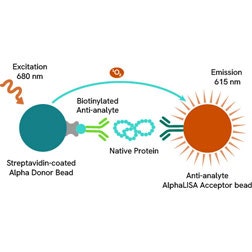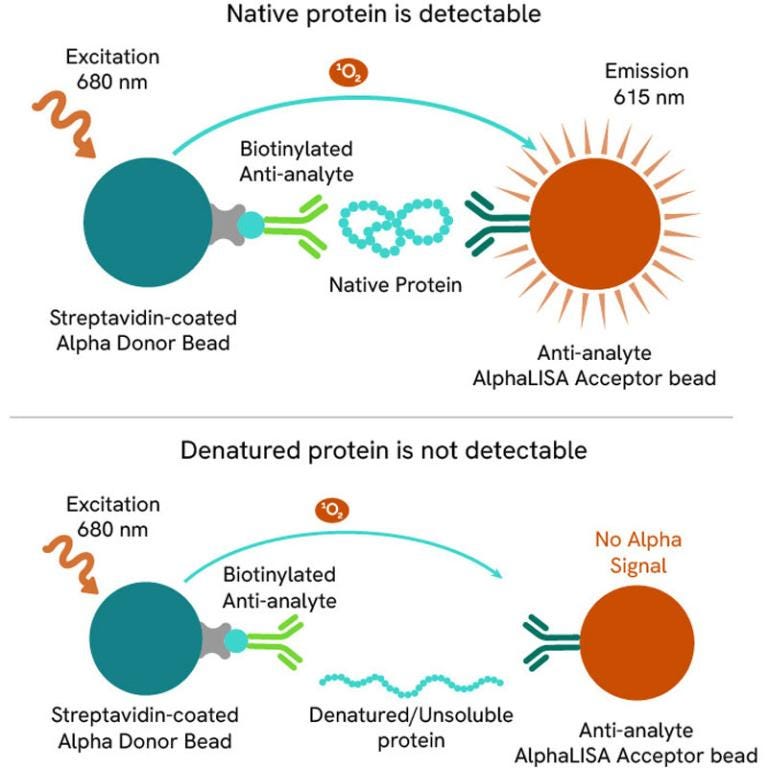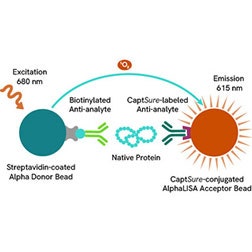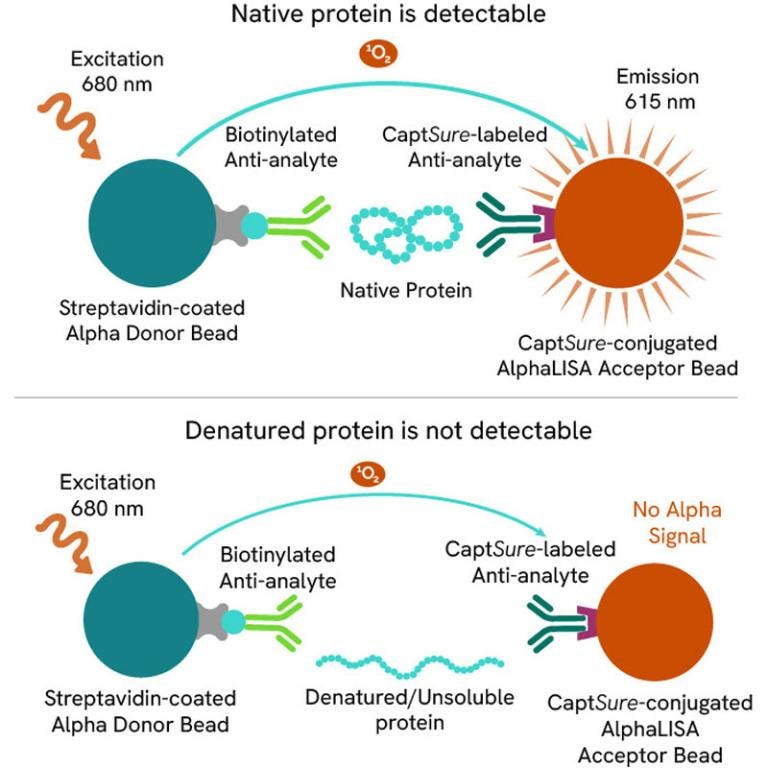
Alpha
For results in half the time of ELISA, without wash steps, and with excellent sensitivity in a variety of matrices, including serum and plasma.
For results in half the time of ELISA, without wash steps, and with excellent sensitivity in a variety of matrices, including serum and plasma.
The principle of detection of the soluble protein by the Alpha CETSA® assay is shown in the figure above. Only the soluble protein will lead to the generation of an Alpha signal (top), while the thermally denaturated insoluble protein does not generate the proximity needed for an Alpha signal (bottom).


Alpha SureFire
For studying pathways or phosphorylated proteins in whole cells or studying endogenous receptors.
For studying pathways or phosphorylated proteins in whole cells or studying endogenous receptors.
The principle of detection of the soluble protein by the Alpha SureFire CETSA® assay is shown in the figure above. Only the soluble protein will lead to the generation of an Alpha signal (top), while the thermally denaturated unsoluble protein is unable to create the proximity needed for the generation of an Alpha signal (bottom).


How can we help?
When it comes to developing assays or troubleshooting issues, always know you’re never on your own.
When it comes to developing assays or troubleshooting issues, always know you’re never on your own.
Whatever the assay you have in mind, you need the right technologies for your target. We can custom conjugate your antibody or biomolecule to any bead, or biotinylate or DIG-label your targets, so you can develop the assay you need. If you prefer, we can even perform the assay development for you.
FAS: Our global team of Field Application Scientists are hands-on subject matter experts in assay development. They are available to assist in both assay development and troubleshooting.
Application support knowledgebase (ASK): Need help at 1am? We’ve got it covered. The Application Support Knowledgebase (ASK) contains detailed information on assay development, protocols, tips, FAQs, citations, troubleshooting and more. Accessible 24 hours a day, 7 days a week.


































